- Home
- Catherine Coulter
Deadlock
Deadlock Read online
Thank you for downloading this Simon & Schuster ebook.
Get a FREE ebook when you join our mailing list. Plus, get updates on new releases, deals, recommended reads, and more from Simon & Schuster. Click below to sign up and see terms and conditions.
CLICK HERE TO SIGN UP
Already a subscriber? Provide your email again so we can register this ebook and send you more of what you like to read. You will continue to receive exclusive offers in your inbox.
To my amazing, editorially talented other half, who never fails to make my work better.
—Catherine
1
WASHINGTON, D.C.
CORRECTIONAL TREATMENT FACILITY
OCTOBER 3
Marsia Gay would be living like a queen, not like an animal locked in a cell, if it weren’t for FBI agent Dillon Savich. He was the one who’d screwed her perfect plan sideways, the man responsible for her being locked in this soulless circle of hell. Of course, that bitch Veronica would pay for her betrayal, too, no doubt about that, but he was the one who’d rained this misery down on her, the one she wanted most.
Savich was a dead man walking—but not yet, not just yet. She wanted to savor his downfall. He would die only after she killed the two people closest to him, the two people whose deaths would hurt him most.
She knew she had to snag his interest with something unique, begin with only an oblique threat, nothing too over-the-top, but something enigmatic and bizarre enough that Savich wouldn’t be able to resist. And suck him in. She wouldn’t underestimate him, not this time. He’d proven he was smart, but she was just as smart—no, she was smarter, and she was going to prove it. She’d make sure Savich knew it was Marsia Gay who’d set everything in motion, who’d had her final revenge. Halloween was coming up. It was the perfect time.
She heard her mother’s vodka-slurred voice whisper, Even as a child, when you wanted something, you grabbed for it, didn’t think. Didn’t work out for you this time, did it?
“I won’t fail this time!” She didn’t realize she’d screamed the words until the guard, a big lummox named Maxie, appeared at the bars and stared at her. Marsia wished she could tear her face off. “A nightmare, sorry.”
Maxie didn’t point out it wasn’t dark yet, too early to sleep. She only shrugged and walked away. Marsia went over to the narrow window that looked out over the desolate exercise yard with its scarred, ancient wooden tables and benches, the pathetic torn basketball hoop where she usually won playing Horse—cigarettes, a small bar of soap from a Holiday Inn, an offer of a prison tattoo made from soot and shampoo or melted Styrofoam, no thank you. She saw Angela lounging against a wall, probably giving orders to her minions. What a sweet name for a mean-as-a-snake muscled gang leader awaiting trial for the murder of her boyfriend and his lover. It hadn’t been difficult to seduce Angela into her orbit. She’d been even easier to manipulate than Veronica. Angela had taken to Marsia right away, told her she’d see to it no one would harm her, if Marsia was nice to her. Marsia had shuddered when Angela lightly touched her arm, but, well, Marsia had been nice. Angela always stayed in sight and took care of whatever Marsia wanted. She kept the other bullies away from the pretty artist girl who spoke so beautifully and was always so polite, so of course they hated her instinctively. Angela never tired of hearing about Marsia’s sculptures, how she worked with this metal and that. Marsia missed her sculpting, of course, but now she looked forward to returning to her studio once she was found not guilty at her trial, and of course her studio would still be waiting for her. After all, she owned the building.
The wind had stiffened, whipping up the dirt into dust devils. She saw a dozen women wandering around the yard, doing nothing in particular, and one lone prisoner, head down, pacing back and forth, apart from the others. It was Veronica. She’d rarely seen her here. The guards made sure they were kept apart, but soon that wouldn’t matter. Marsia knew Veronica well enough to know she felt guilt, awful guilt, about striking the deal as the prosecution’s star witness against Marsia in exchange for the safety they’d promised her. Sorry, Veronica, that isn’t going to happen; it’s going to get you killed. With no witness to testify against Marsia, the evidence would be more circumstantial than not. No, not enough to convict her.
Veronica, I’m going to choreograph a special dance for you to mark your exit from the planet. Thank you.
Later, on the edge of sleep, she heard her dead lush of a mother speaking in her ear. I could tell you things you haven’t thought of yet, wormy things you could do. I could help you.
She didn’t scream out this time. She lay there and whispered, “Okay, Mom, talk to me.”
2
WASHINGTON, D.C.
HOME OF ZOLTAN
WEDNESDAY EVENING
OCTOBER 28
The last place Rebekah ever expected to find herself was in the home of a medium. Zoltan the Medium was how the woman had introduced herself when she’d called Rebekah. But how do you say no when a medium tells you your grandfather who died only a month ago wants to speak to you? Wants you to forget he’s dead and calling from the afterlife? Rebekah almost hung up, almost said, if he’s in his afterlife, doesn’t that mean his life here on earth is over? As in he’s dead? But Zoltan had said her grandfather wanted to speak to his Pumpkin, maybe to warn her about something. Zoltan wasn’t sure. Rebekah hadn’t wanted to believe any of it, but Pumpkin had been his favorite nickname for her, and how could this self-proclaimed medium possibly know that? She’d felt gooseflesh rise on her arms. She’d had no choice, not really. She knew she had to find out what this was all about, and so here she was, walking behind Zoltan, a woman not that much older than her own twenty-eight years, into her living room. Rebekah had expected to see a table with a long red tablecloth covering it, primed to levitate on command, but there was no table everyone would sit around, only a small coffee table. She saw a long, narrow, high-ceilinged room lit only by one standing lamp in the far corner and draperies rippling in the breeze given off by a low-humming portable fan beside the large front window. Curiously, not far from the fan, a fire burned in the fireplace, low and sullen. However strange the mix, the room was pleasantly warm.
Zoltan wasn’t wearing a flowing caftan and matching turban or big shiny hoop earrings in her ears. She was wearing a dark blue silk blouse, black pants, and low-heeled black shoes. Her hair was dark, pulled back in a sleek chignon. Her eyes were so dark a blue they appeared nearly black. She’d looked and seemed perfectly normal when she’d greeted Rebekah. She asked her to be seated on the sofa and offered her a cup of tea.
The tea was excellent: hot, plain, no sugar, the way she liked it. Zoltan smiled at her, sipped her own tea. “I know you don’t believe one can speak to the Departed, Mrs. Manvers. Actually, I far prefer a skeptic to blind acceptance. I’m pleased you decided to come. I will tell you what happened. As I said when I called you, your maternal grandfather came to me very unexpectedly while I was trying to contact another Departed for his son. Your grandfather was anxious to speak to you. He called you Pumpkin, which you recognized. Do you wish to proceed?”
Rebekah nodded, drank more tea, and kept any snarky comments to herself.
Zoltan nodded. “Good. Let us begin. I want you to relax, Mrs. Manvers—may I call you Rebekah?”
Rebekah nodded.
“And you may call me Zoltan. I know this is difficult for you, but I need you to try to keep an open mind and suspend judgment. Empty your mind, simply let everything go. Begin by relaxing your neck, your shoulders, that’s right. Breathe slowly and deeply. Good.”
They sat in silence for a minute or so before Zoltan spoke again, her voice low and soothing. “Rebekah, when your grandfather crashed my party, so to speak, all he told me was he had to speak to
you. I don’t know why he was so anxious, he didn’t say. On his third visit, three nights ago, he finally identified himself and you by your married name so I could contact you. He always came when other clients were here. Why? I don’t know. Maybe it was easier for him to reach me with the pathway already open. His message was always, ‘Rebekah, I want Rebekah, I want my Pumpkin. I must tell her—’ A warning? That’s what I thought, but I really don’t know. I asked you to bring something personal of his with you.”
Rebekah opened her handbag and pulled out a letter and a photograph of her and her grandfather standing on the steps of the Capitol building, people flowing around them. He was smiling, eager to get on with his life, and beside him Rebekah, just turned eleven, was clutching his hand and looking as happy as he was. He had no way of knowing what would happen to him, but of course, no one did. The photograph had been taken a year before the series of strokes happened and effectively ended his life, leaving him in a coma for sixteen years. He’d finally died last month and been buried in Arlington National Cemetery with all due pomp, with Rebekah’s husband standing next to her, his arm around her. Rebekah felt tears swim in her eyes as she handed Zoltan the photograph and the letter.
Zoltan took the letter, didn’t read it, but seemed to weigh it in her hand. She took the photograph, glanced at it, then placed it faceup over the letter, in front of Rebekah.
“Rebekah, please place your left hand over the letter and the photograph and give me your right hand.”
Rebekah did as she was asked. She no longer felt like she’d fallen down the rabbit hole. She was beginning to feel calmer, more settled, perhaps even receptive. She let her hand relax in Zoltan’s. “Why my right hand? Why not my left?”
Zoltan said, “I’ve learned the right hand carries more latent energy than the left. Odd but true, at least in my experience. Good. I want you to think about what your grandfather said to you that day the photograph was taken, think about what you were feeling in that moment. Now picture the man in the photograph. Tell me about him.”
“Before the strokes and the coma, he was in Congress, always on the go, always busy with his political maneuvering against the incumbent majority. I remember that day he was happy. A bill I think he’d authored had passed.” She paused a moment. “As for the letter, it’s the last one he wrote me. It was chatty, nothing serious. Grandfather rarely emailed me; he preferred to write his letters to me in longhand.”
“Now, lightly touch the fingers of your left hand to the photograph. Let them rest on your grandfather’s face. Excellent. Close your eyes, picture his face in your mind, and simply speak to him as if he were sitting beside you on the sofa. It’s all right if you think this is nothing more than a silly exercise, but indulge me, please.”
Rebekah didn’t resist. She was feeling too relaxed. Zoltan poured her another cup of tea from the carafe on the coffee table. Rebekah drank, savored the rich, smooth taste, and did as Zoltan said. Oddly, she saw her grandmother’s face, cold and aloof, not her grandfather’s. Gemma had been a séance junkie all her life, something that made Rebekah’s mom roll her eyes. Grandmother was talking to dead people? No, her mother had said, talking to the dead was crazy, meant for the gullible. Rebekah wondered if her grandmother had tried to contact her husband since his death. Why would she? To gloat that he was dead and she wasn’t?
Zoltan said again, “Rebekah? Please speak to your grandfather. Picture him here with you. Speak what’s in your heart. Be welcoming.”
Rebekah said, her voice clear, “Grandfather, I remember you when you were well and happy before you fell into a coma. I loved you so much and I knew you loved me. Everyone called me your little confidante, and it was true. You trusted me with all the stories you called your secret adventures, even when I was a kid. Do you know I kept my promise to you never to tell anyone the stories, not even my mother, certainly not my grandmother? They were always only between us. You made me feel very special.” Her voice caught. “I miss you, Grandfather. I think of you every day and pray you’re at peace.” She knew, objectively, when he’d fallen into the coma, his life was over, though his body held on. She knew she should have been relieved when his body finally let go, but the reality of his actual death still broke her. She swiped away a tear, swallowed. “Zoltan said you want to speak to me. If you can hear me, I hope you can come—through.” Her voice fell off. She felt a bit silly, but oddly, it didn’t overly concern her.
The draperies continued to flutter in the breeze, the fire stayed sullen. The lamplight, however, seemed to dim, then brighten, and dim again. Zoltan’s face was now in shadow. She said in the same gentle voice, each word slow and smooth, “Keep talking to him, Rebekah. I can feel a presence hovering close, and it’s familiar.”
Rebekah didn’t feel anything different. Well, except for the dimmed lamplight. Zoltan’s right hand held Rebekah’s, and her left hand lay palm up on her lap. Rebekah knew she should feel like an idiot, but she didn’t. She felt relaxed, curious to see what would happen. “Perhaps it isn’t really Grandfather you’re feeling, Zoltan—”
Zoltan suddenly raised her left hand, and Rebekah stopped talking. “Is that you, Congressman Clarkson? Are you here?”
The draperies grew still, though the fan continued to churn the air. The fire suddenly sparked, shooting up an orange flame, then the burning wood crumbled, making a soft thudding sound. The lamplight grew brighter, then flickered and went completely dark.
Only the dying fire lit the room.
All tricks, she’s pressing some magic buttons with her foot—
She felt Zoltan’s hand tighten ever so slightly around hers. “Someone is here, Rebekah,” Zoltan said calmly in her soft, even voice. “I can’t be certain until the Departed talks to me, but the feeling of his presence is, as I said, familiar. Do you know of a nickname your grandfather was called? Or did you yourself have a special name for him as he did for you?”
She remembered her grandfather’s face, clear as day, saw him throw back his head and laugh at something she’d said. She whispered, “Methodist, that was his nickname. He told me his cohorts in Congress called him Methodist, too. The name got out, and even his own staff began calling him that—‘Methodist believes this, Methodist said that.’ ” She swallowed tears again, hating they were so close to the surface. “I remember hearing Grandmother say he’d made up the name himself. When I asked him, he admitted it, said he didn’t want anyone else making up a name for him, particularly the opposition, and Methodist practically made him a poster boy for God, full of probity and sheer boring honesty. A lot of people called him that before his first stroke.”
“Call him by his nickname.”
Very well, play along, why not? At best, it’s entertainment, but you’re here, so why not go along with it? But is it only entertainment? Grandmother would believe it, maybe, but not me.
She felt foolish, but she cleared her throat. “Grandfather—Methodist?—it’s Rebekah, your granddaughter. If you are here, tell me what’s so important.”
A puff of dense black smoke plumed up from the fireplace embers, making an odd sucking sound. The lamp brightened, then darkened again.
Rebekah’s throat was dry, and she drank some more tea, then placed her right hand back into Zoltan’s. She knew the lamp, the fire, the billowing draperies were simple stage props, but she didn’t really care, it wasn’t important. She had to know what her grandfather wanted to tell her or what this woman wanted her to believe he did. Rebekah was surprised how calm she felt, her body and mind relaxed. Still, how could any of this be true?
Zoltan said, “I’m not sure if it’s your grandfather I feel. Is your grandmother alive, Rebekah?”
“Yes, she is. Her name is Gemma Clarkson. She’s in her late seventies. She continues to run all of Grandfather’s businesses in Clairemont, Virginia, west of Richmond, where she and my grandfather lived all their lives. Clairemont was in his district.”
“Did your grandfather and grandmother have a strong bond
? Would speaking about her to him perhaps make him come through the Verge? That’s what I call the threshold the spirits have to cross back over into our reality.”
“No,” Rebekah said, nothing more. It was none of Zoltan’s business. Even Rebekah couldn’t remember a time when her grandparents had shown any affection for each other, and her memories went back a very long way. She’d never seen her grandmother at the Mayfield Sanitarium during those sixteen long years her grandfather had lain there helpless, his only sign of life his still-beating heart. She’d asked her grandmother once, back in the beginning when she’d been young, why she didn’t visit Grandfather. Her grandmother had merely said, “Perhaps I will.” But Rebekah didn’t think she had.
“I think my grandmother was glad when he died. She did go to his funeral, but she had to, didn’t she? I doubt she’d want to be here in my place if she thought her husband would show up. Even though she’d believe it.”
“Your grandmother is a believer, then?”
“Yes, but she’s always careful because she thinks most mediums are frauds. That’s what I heard her tell my mother.”
She wanted to ask Zoltan if she was a fraud, but when she looked into Zoltan’s eyes, darker now in the dim light, and felt her intensity, she let the thought go.
“Your grandmother is perfectly correct. There are many frauds.” Zoltan began to hum softly, then she said, her voice barely above a whisper, “Congressman Clarkson? Methodist? Are you having trouble coming through this time? If you are, reach out to me, and I will speak for you to Rebekah. Come, I am open to you. I am your conduit. You’ve already connected with me, you know you can trust me. Your granddaughter is here. You must try again.”
The lamp bulb burst into brightness that reached the far corners of the living room. Thick black smoke erupted upward from the fireplace embers, and the draperies began to move again. Rebekah held perfectly still. She heard her own voice whisper, “Grandfather, is that you?”

 The Cove
The Cove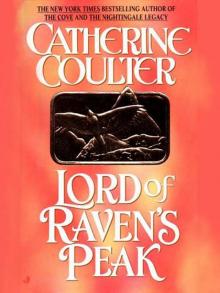 Lord of Raven's Peak
Lord of Raven's Peak The Wyndham Legacy
The Wyndham Legacy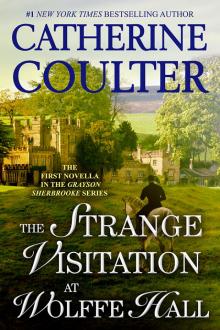 The Strange Visitation at Wolffe Hall
The Strange Visitation at Wolffe Hall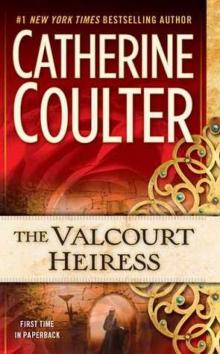 The Valcourt Heiress
The Valcourt Heiress Bombshell
Bombshell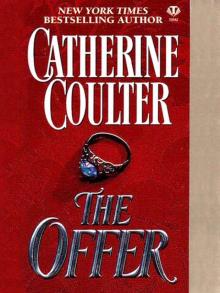 The Offer
The Offer The Edge
The Edge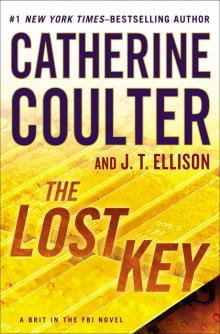 The Lost Key
The Lost Key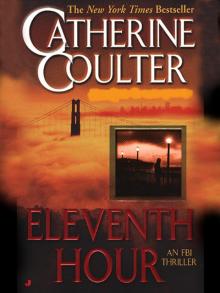 Eleventh Hour
Eleventh Hour Blindside
Blindside Devil's Daughter
Devil's Daughter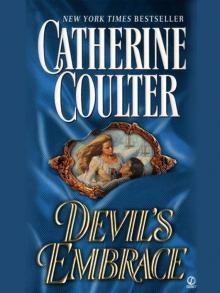 Devil's Embrace
Devil's Embrace Earth Song
Earth Song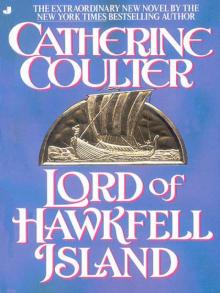 Lord of Hawkfell Island
Lord of Hawkfell Island Calypso Magic
Calypso Magic Lyon's Gate
Lyon's Gate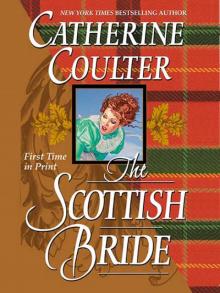 The Scottish Bride
The Scottish Bride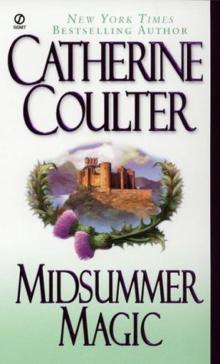 Midsummer Magic
Midsummer Magic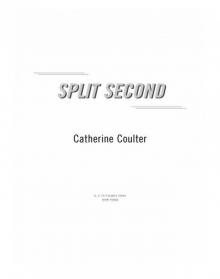 Split Second
Split Second Enigma
Enigma Blowout
Blowout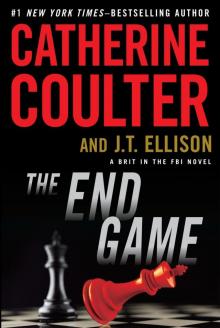 The End Game
The End Game Double Take
Double Take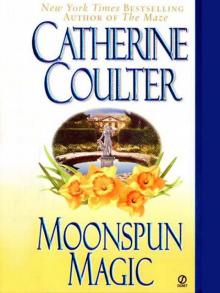 Moonspun Magic
Moonspun Magic The Courtship
The Courtship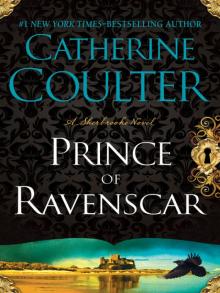 Prince of Ravenscar
Prince of Ravenscar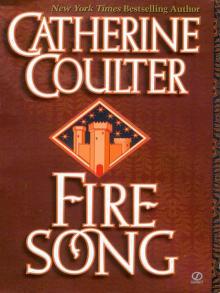 Fire Song
Fire Song Wizard's Daughter
Wizard's Daughter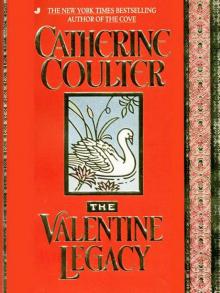 The Valentine Legacy
The Valentine Legacy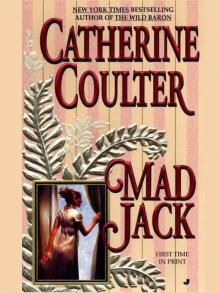 Mad Jack
Mad Jack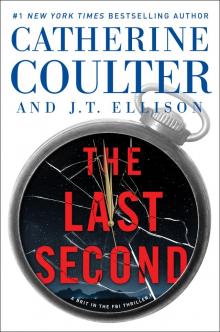 The Last Second
The Last Second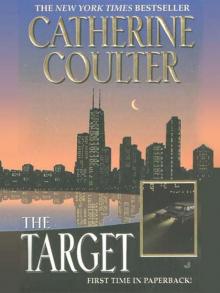 The Target
The Target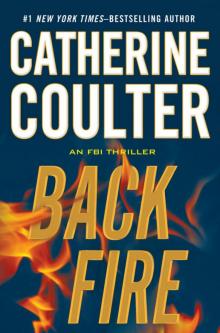 Backfire
Backfire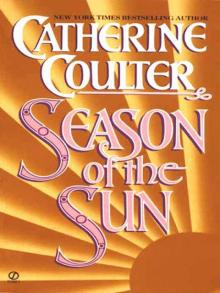 Season of the Sun
Season of the Sun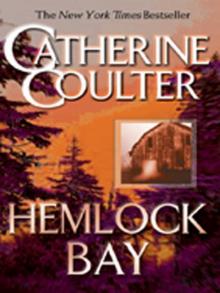 Hemlock Bay
Hemlock Bay Insidious
Insidious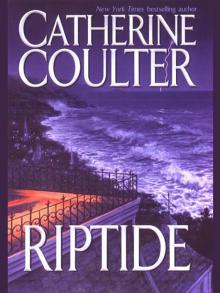 Riptide
Riptide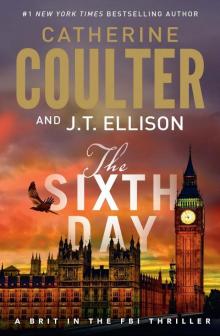 The Sixth Day
The Sixth Day Secret Song
Secret Song KnockOut
KnockOut Jade Star
Jade Star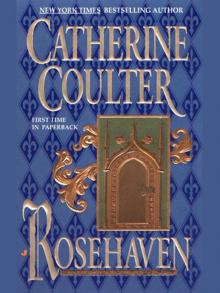 Rosehaven
Rosehaven The Hellion Bride
The Hellion Bride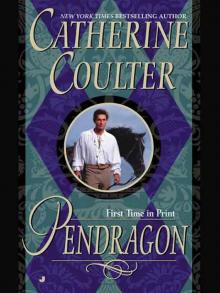 Pendragon
Pendragon Vortex
Vortex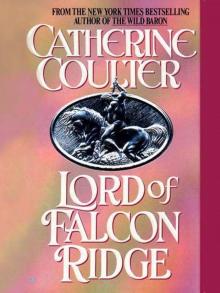 Lord of Falcon Ridge
Lord of Falcon Ridge The Nightingale Legacy
The Nightingale Legacy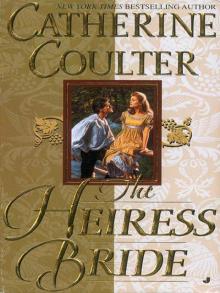 The Heiress Bride
The Heiress Bride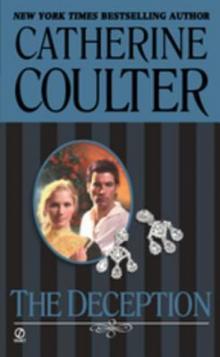 The Deception
The Deception The Maze
The Maze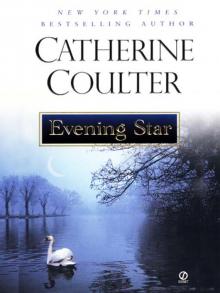 Evening Star
Evening Star Wild Star
Wild Star The Final Cut
The Final Cut Paradox
Paradox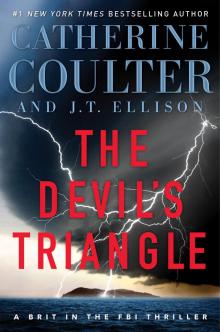 The Devil's Triangle
The Devil's Triangle The Wild Baron
The Wild Baron Point Blank
Point Blank Labyrinth
Labyrinth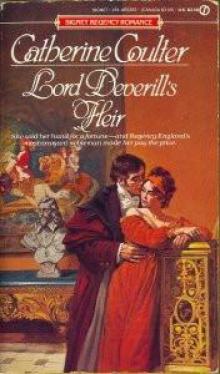 Lord Deverill's Heir
Lord Deverill's Heir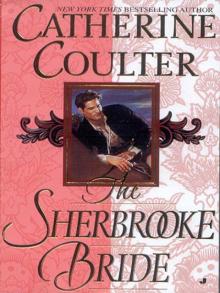 The Sherbrooke Bride
The Sherbrooke Bride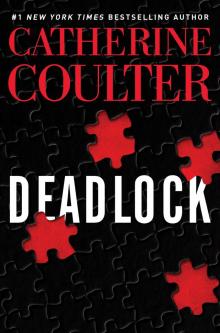 Deadlock
Deadlock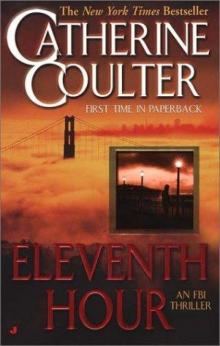 Eleventh Hour f-7
Eleventh Hour f-7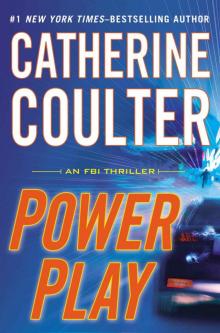 Power Play (An FBI Thriller)
Power Play (An FBI Thriller)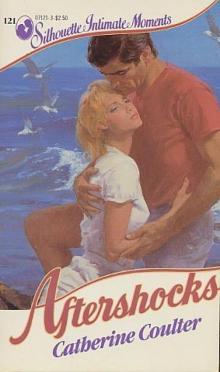 Aftershocks
Aftershocks Sherbrooke Twins tb-8
Sherbrooke Twins tb-8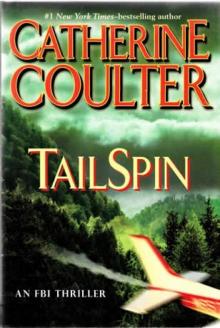 Tail Spin ft-12
Tail Spin ft-12 The FBI Thrillers Collection
The FBI Thrillers Collection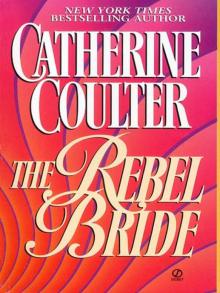 The Rebel Bride
The Rebel Bride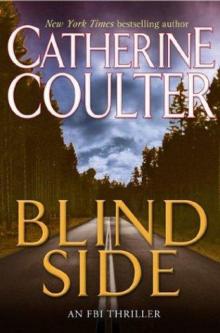 Blindside f-8
Blindside f-8 Lyons Gate tb-9
Lyons Gate tb-9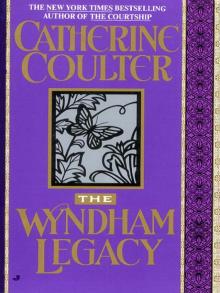 Wyndham Legacy
Wyndham Legacy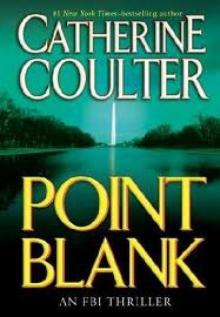 Point Blank f-10
Point Blank f-10 The Prince of Ravenscar
The Prince of Ravenscar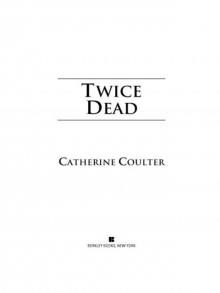 Twice Dead
Twice Dead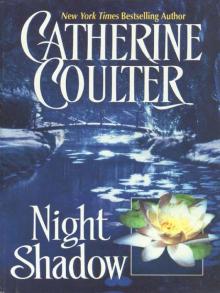 Night Shadow
Night Shadow Night Storm
Night Storm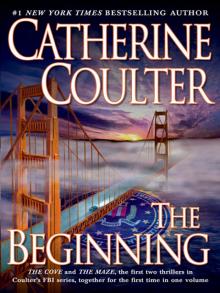 The Beginning
The Beginning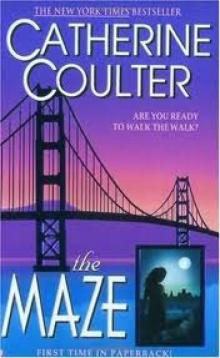 The Maze ft-2
The Maze ft-2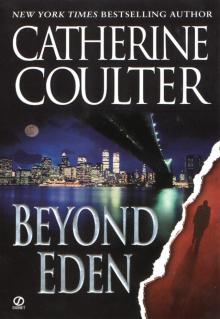 Beyond Eden
Beyond Eden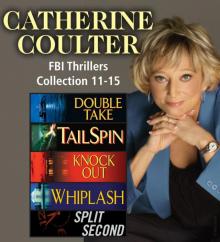 The FBI Thrillers Collection: Vol 11-15
The FBI Thrillers Collection: Vol 11-15 FALSE PRETENSES
FALSE PRETENSES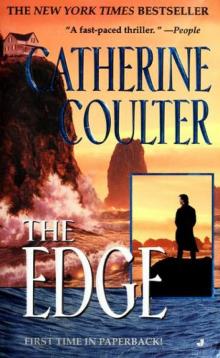 The Edge f-4
The Edge f-4 Bombshell (AN FBI THRILLER)
Bombshell (AN FBI THRILLER) The Ancient Spirits of Sedgwick House (Grayson Sherbrooke's Otherworldly Adventures Book 3)
The Ancient Spirits of Sedgwick House (Grayson Sherbrooke's Otherworldly Adventures Book 3)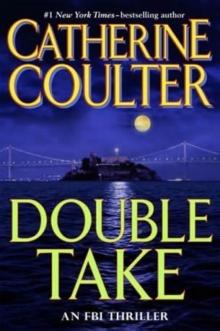 Double Take ft-11
Double Take ft-11 The Heir
The Heir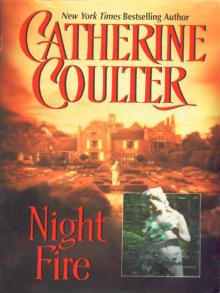 Night Fire
Night Fire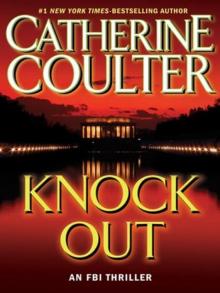 KnockOut ft-13
KnockOut ft-13 Hemlock Bay f-6
Hemlock Bay f-6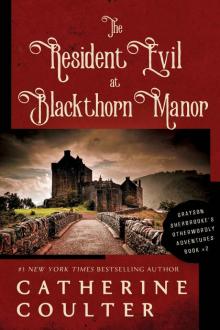 The Resident Evil at Blackthorn Manor (Kindle Single) (Grayson Sherbrooke's Otherworldly Adventures Book 2)
The Resident Evil at Blackthorn Manor (Kindle Single) (Grayson Sherbrooke's Otherworldly Adventures Book 2)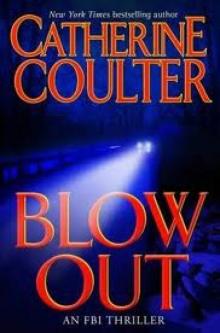 Blowout ft-9
Blowout ft-9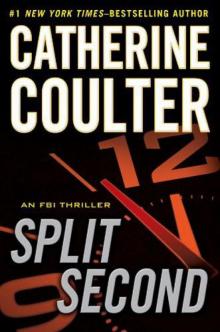 Split Second f-15
Split Second f-15 The Sherbrooke Series Novels 1-5
The Sherbrooke Series Novels 1-5 Impulse
Impulse Paradox (An FBI Thriller Book 22)
Paradox (An FBI Thriller Book 22)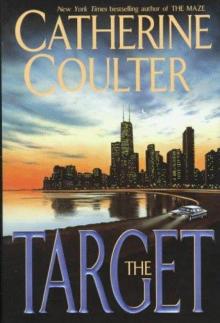 The Target f-3
The Target f-3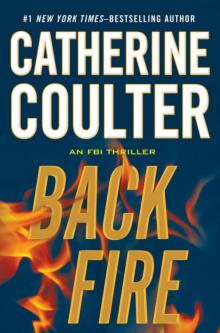 Backfire fst-16
Backfire fst-16 Born To Be Wild
Born To Be Wild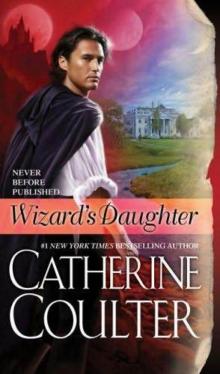 Wizards Daughter tb-10
Wizards Daughter tb-10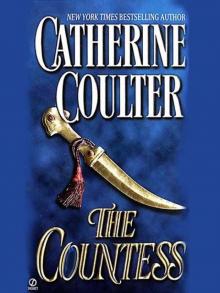 The Countess
The Countess